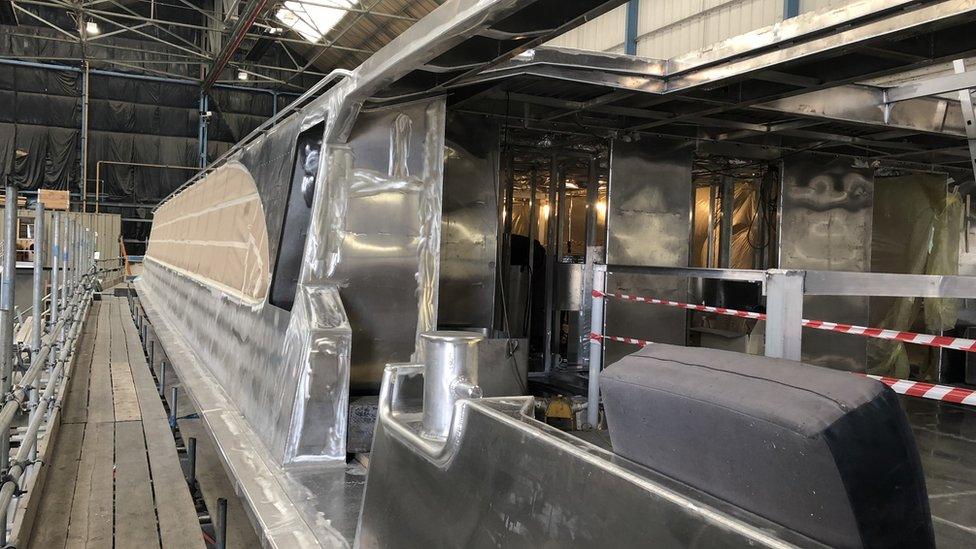Will the new Thames Clipper increase river travel?
- Published

In 2016-17, there were 10.6m journeys on all river services combined
A Thames Clipper commuter today told me her trip to work was "life enhancing".
I have never heard anyone describe their journey like that before.
And there is undoubtedly a certain charm to getting around by boat.
All of London's mayors have tried to energise the use of the river but it is still yet to take off.
In 2016-17, there were 10.6 million journeys on all river services combined (that includes the Woolwich ferry).
That compares to 10.5 million hires on the Santander cycle hire scheme and 122 million journeys on the Docklands Light Railway (DLR).
The current aim is to double the number of journeys using the Thames to 20m a year by 2035
So there is room for growth. The current aim is to double the number of journeys using the Thames to 20 million a year by 2035.
Sean Collins, the boss of Thames Clippers, says there is still a lack of awareness.
The piers are not well signposted. He also wants the Clipper routes included on the Tube map.
Despite this, the boats are becoming busier and a 拢4m clipper is due to be built at the Wight Shipyard on the Isle of Wight to fill the capacity gap.
The new boat - named Venus - will be bigger with a shallow bottom and a lower roof.
It means it will be more versatile and will be able to go under the bridge from Putney to Woolwich. It will also increase capacity on the river by 8%.
The clipper, which will uses aerospace technology, will be in service next year,
But will it persuade more passengers to use the river?